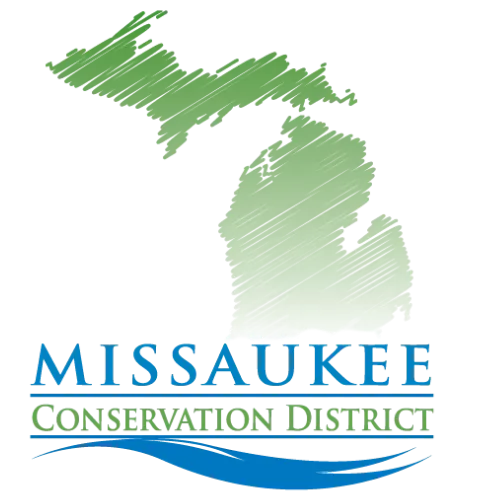what we do
Education Kit Rentals
Bring hands-on conservation learning to your classroom or group without the hassle of purchasing and storing materials. Our education kits make environmental education engaging and accessible for all ages.
How it works
1
Select Your Kit
Browse our kits and fill out our request form with your preferred dates.
2
Teach & Learn
Have your engaging lesson with complete materials and adaptive lesson plans.
3
Return Clean
Return kit in clean condition, noting any items that need replenishing.
Available Kits
Everything you need for engaging conservation education is included. Our kits are organized by age groups to help you find the perfect fit for your students. Each kit includes adaptive lesson plans that support Michigan and Next Generation Science Standards.
PRE-K TO GRADE 4
Lower Elementary
Looking at Leaves
Pre-K-2 | Art & Science
Explore leaf shapes, evergreen vs. deciduous trees, and seasonal changes with leaf crafts. This activity can be messy.
Birds & Rubbing Plates
Pre-K-2 | Art, History & Geography
Plastic bird outlines for discussing adaptations, shapes, and sizes.
Tree Detectives
Pre-K-6 | History
Examine tree "cookies" to learn about tree structure and environmental history.
Garden in a Glove
K-2 | Science
Learn seed anatomy, germination basics, and Michigan crops. This activity can be messy.
Bird Food Sources and Migration Poem
K-2 | Language Arts & Science
Discover what birds eat and why some migrate.
The Mitten
K-2 | Language Arts & Social Studies
Interactive read-along activity with laminated mittens and animal pieces.
Water Bracelet
K-3 | Art & Civics
Water conservation history and practices with bracelet-making and steward pledge.
A Water's Journey
K-3 | Art & Science
Station-based water cycle activity with pipe-cleaner bracelet journaling.
Owl Pellets
K-4 | Science
Dissect real owl pellets to discover what owls eat and learn about their unique digestive process. This activity can be messy.
Nature Discovery Box (Backyard Safari)
K-5 | Language Arts
Have a discussion about what is found in nature, what animals leave behind or uses for natural items. This requires a large space.
Fish Prints
K-5 | Art & Science
Learn about Michigan fish types and anatomy, plus dichotomous key identification. This activity can be messy.
Every Tree for Itself
K-8 | Science
Interactive game about tree needs (nutrients, space, water) and trunk structure.
Egg Anatomy
2-4 | Language Arts
Create egg dioramas connecting food sources to bird reproduction.
Freddie the Fish
2-5 | Language Arts & Civics
Follow a story about negative human impacts on aquatic life with hands-on activities. This activity can be messy.
Grade 3 TO GRADE 8
Upper Elementary to Middle School
Eat or Be Eaten
K-5 | Science
Food web basics with 12 game sets for whole-class participation.
The Shore Tour
K-8 | Civics & History
Comprehensive kit with lessons, labs, and board game about shoreline habitat protection. Includes a Field Trip to Lake Missaukee, Clam River Dam, State Forest Campgrounds on a Lake, etc.
On the Farm
2-5 | History, Geography & Economics
Explore food and clothing sources with real materials: wool, corn, soybeans, twine. Includes a Field Trip to a Dairy Farm.
Stormwater Game
2-6 | Art & Science
Station-based activity about water travel and freshwater protection. Includes Field Trip to Wastewater Treatment Plant.
Soybeans go to School
3-5 | History & Economics
Michigan soybean crop study: growing conditions and daily life uses.
Busy Bees
3-5 | Science
Pollination and flower parts with extensions on pesticide impacts.
Right Plant, Right Place
3-5 | Language Arts & Social Studies
Native vs. invasive plants, competition, and adaptations with three activities.
Ecosystems
3-6 | Language Arts & History
Learn ecosystem levels and connections with adaptable lesson depth.
The Great Swim
3-12 | Science
Station-based salmon journey game with human impact scenarios.
Food Chain and Energy
4-6 | Science
Energy transfer simulation showing survival vs. consumption in food chains.
It's All Connected
4-6 | Science & Economics
Producer, consumer, decomposer relationships using Michigan habitat posters.
Dodge the Invader
4-7 | Science
Active game demonstrating invasive species effects on communities.
Monarch Migration
4-8 | Science
Station-based butterfly journey activity, pairs with live caterpillars.
Great Migration - Birds
4-8 | Science
Station-based bird migration challenges including invasive species impacts.
Mini Groundwater
4-8 | Science
Build groundwater systems in cups to learn about pollution and water wells. This activity can be messy.
Invasive Fish Game
4-10 | Science
Group game teaching about round goby and ecosystem disruption. Includes Field trip to a Fish Hatchery or Carl T. Johnson Center.
Bird Detectives
6-8 | Science
6-lesson Cornell Lab program covering bird identification, diversity, and citizen science.
Invasive Species Outdoor Lab
6-9 | Science
Field study using quadrants to evaluate invasive species impacts.
Grade 9 TO GRADE 12
High School
Chemistry of Plastics
10-12 | Chemistry & Civics
Lab-based plastic chemistry analysis requiring Bunsen burners, includes recycling lessons. Includes Field Trip to Recycling Center.
Water Quality Lab
9-12 | Science
Field investigation of abiotic and biotic water quality factors, includes waders and nets. Includes Field Trip to Lake Missaukee or Muskegon River etc.
Pond Study
9-12 | Art & Science
Microscopic water organism examination with specimens and sample tubes. Includes Field Trip to Lake Missaukee or Muskegon River etc.
Michigan Geology
8-12 | History & Geology
Hands-on study of Michigan's glacial geology with rock specimens and Earth history timeline. Field Trip to a Quarry or Main St. Rocks.
Name that Tree
8-12 | Art & Science
Botany lesson with dichotomous keys and Michigan tree specimens. Includes Field Trip to Missaukee Mountain, School Forest, State Forest Land.
Generate!
8-12 | Math, Civics and Language Arts
Energy resource evaluation game considering environmental, cost, and efficiency factors. Includes Field Trip to Wolverine, Consumer, Viking Energy, etc. to see how they work in person
Great Lakes Most Wanted
7-12 | Art & Science
Study of eight Michigan invasive species with group activities and presentations
Zoonotic Diseases
10-12 | Art, History & Geography
Pathogen types and disease prevention practices in lab and farm settings. Includes Field Trip to a Large Animal Vet.
Break the Barrier
7-10 | Art & Science
Sea Lamprey invasion study with population control methods, 6 game sets available. Connect with DNR to get Lamprey in the Classroom!
General public education kits
All-ages and grade levels
Bat Education Ki
Science
Complete "EDUBat" lesson plans with story books, puppets, identification tools, and ecosystem games
Animal Tracks
Art & Science
Michigan wildlife identification through footprints, with ink stamps and plaster casting
Hands-on Wildlife
History & Science
Touch pelts and examine skulls to learn about animal adaptations and survival.
Intro to Fishing
Art & Science
Safe casting practice with "Backyard Bass" and large-scale knot tying with hangers and rope.
Native Garden and Stormwater Information
Art, History & Science
Complete handouts and educational materials including Stormwater Game.
Candle Making
Crafting
Repurpose glass jars and old crayons while learning candle history and science.
Papermaking
Crafting
Learn paper production and repurposing with optional native seed additions
Bee Hotel
Crafting
Create native solitary bee habitat while learning about bee lifecycles.
Bird Feeder/Suet
Crafting
Repurpose recyclables into feeders and make winter suet with lard or peanut butter
submit your request
Request an Education Kit
Fill out this form and we'll contact you to confirm availability and arrange pickup. A deposit (check) may be required at pickup. The check will not be cashed unless kit is not returned, or is returned damaged. Payment may be necessary for any damage to equipment or supplies. Kit rentals are free for Missaukee County educators and community groups. We'll contact you within 2-3 business days to confirm availability.
Get Involved
Volunteer
Join hands-on conservation work that makes a visible difference in our community.
Attend
Join your neighbors at our various upcoming conservation workshops and events.
Partner
Connect your business or organization with conservation-minded residents while supporting meaningful local work.
Donate
Make conservation accessible for everyone. Ensure free expert help for all neighbors regardless of income.

ABOUT
OUR PROGRAMS
GET INVOLVED
CONTACT
SUPPORT
Copyright 2026. Missaukee Conservation District. All Rights Reserved. Terms & Conditions. Privacy Policy.
This website was designed by Echoroot Growth Consulting.








